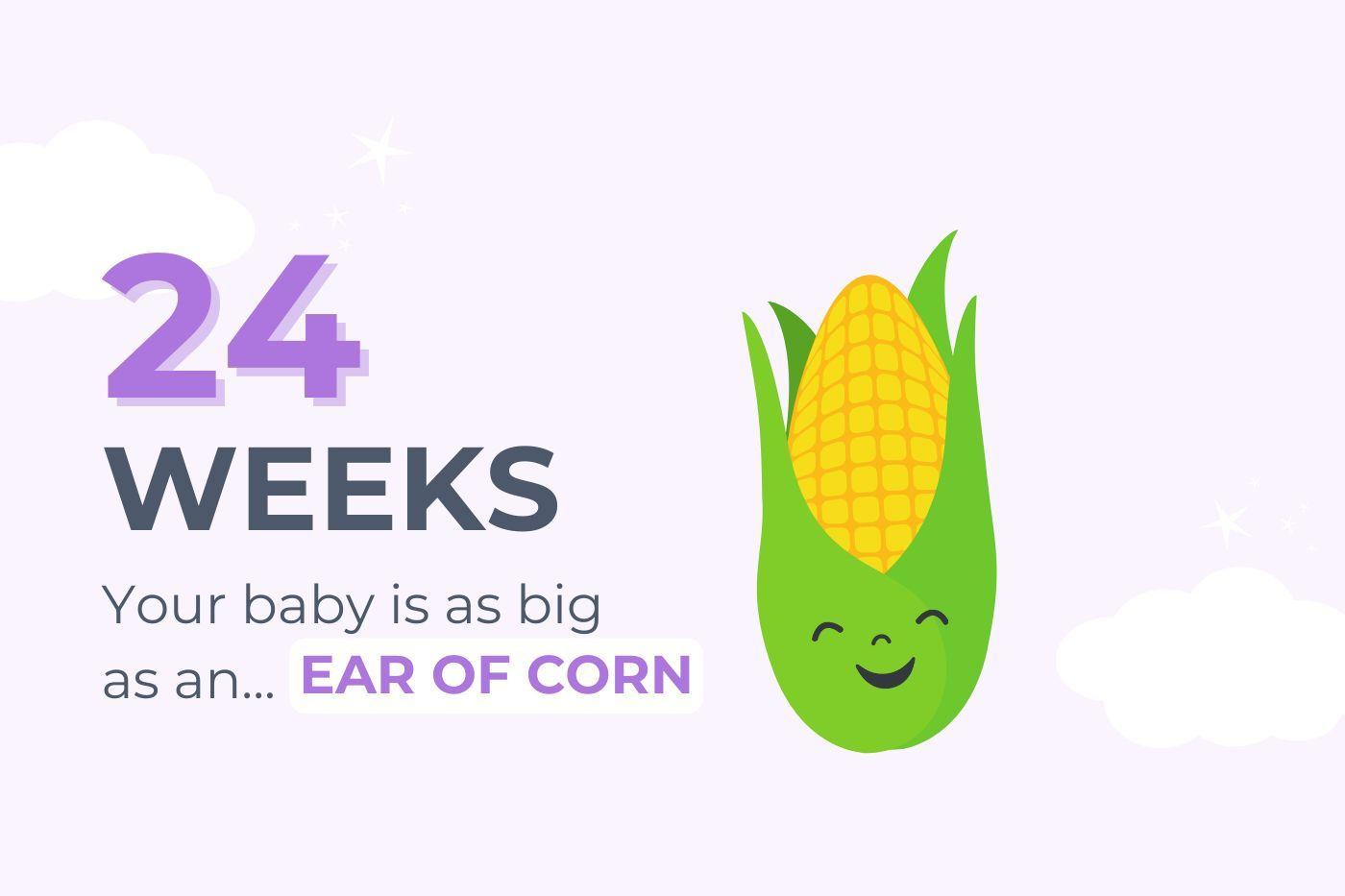PREGNANCY
24 Weeks Pregnant: Sexy Dreams, Strange Dreams
Many women start having strange dreams—and vivid sexual dreams.

Written by
Dr. Harvey Karp

SHARE THIS ARTICLE
PARENT PICKS
Bestsellers
PREGNANCY

Written by
Dr. Harvey Karp

SHARE THIS ARTICLE
Bestsellers
Bit by bit, your baby is stretching and growing! But they’re still far from being ready to arrive just yet. By now, your little one responds to bright light, your movements, and even your touch (try gently massaging your bump). Their hearing is improving, too. They can hear your tummy rumbling, outside music, and nearby conversations.
The two sounds they hear most clearly are the whoosh of your blood flowing through the placenta—and your voice. In fact, your voice travels directly through your lungs to your baby. Before long, they’ll move in rhythm with your speech and begin recognising your voice! (That rumbly, whooshing sound is also why white noise is so soothing for newborns—it mimics the womb environment.)
At this stage, your baby still receives all their oxygen through the umbilical cord, but their spongy lungs are developing tiny air sacs to prepare for breathing after birth.
At 24 weeks, your baby is about the size of a corn cob.
At 24 weeks, you’re roughly five and a half months along.
You’ve reached the 6-month milestone! Many parents-to-be report vivid dreams around this time—sometimes even very strange or sexual ones. Experts aren’t exactly sure why, but hormonal changes, disrupted sleep, and more frequent night wakings (thank you, bathroom trips!) likely play a part.
Daytime desire may also be heightened. Increased blood flow to your pelvic area can make your vagina and labia a little swollen and sensitive—which can make sex feel more pleasurable. If you’re not in a high-risk pregnancy, sex is generally safe—your baby is well protected. But if you’re experiencing bleeding, pain, or are at risk of preterm labour, check in with your midwife or doctor before having penetrative sex.
“My mum used to say it doesn’t matter how many kids you have…because one kid’ll take up 100% of your time, so more kids can’t possibly take up more than 100% of your time.” — Karen Brown
Disclaimer: The information on our site is NOT medical advice for any specific person or condition. It is only meant as general information. If you have any medical questions and concerns about your child or yourself, please contact your health provider. Breastmilk is the best source of nutrition for babies. It is important that, in preparation for and during breastfeeding, mothers eat a healthy, balanced diet. Combined breast- and bottle-feeding in the first weeks of life may reduce the supply of a mother's breastmilk and reversing the decision not to breastfeed is difficult. If you do decide to use infant formula, you should follow instructions carefully.